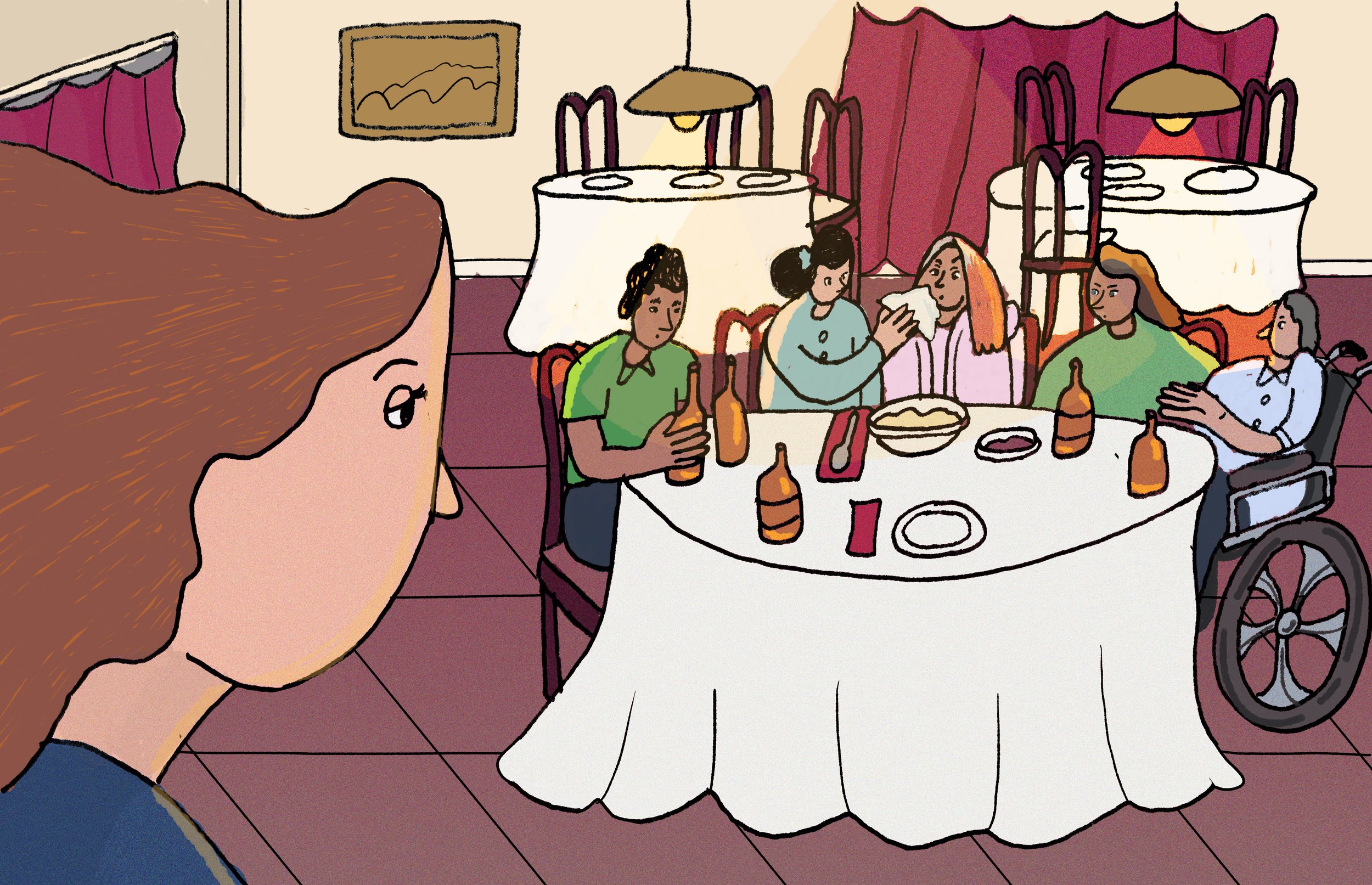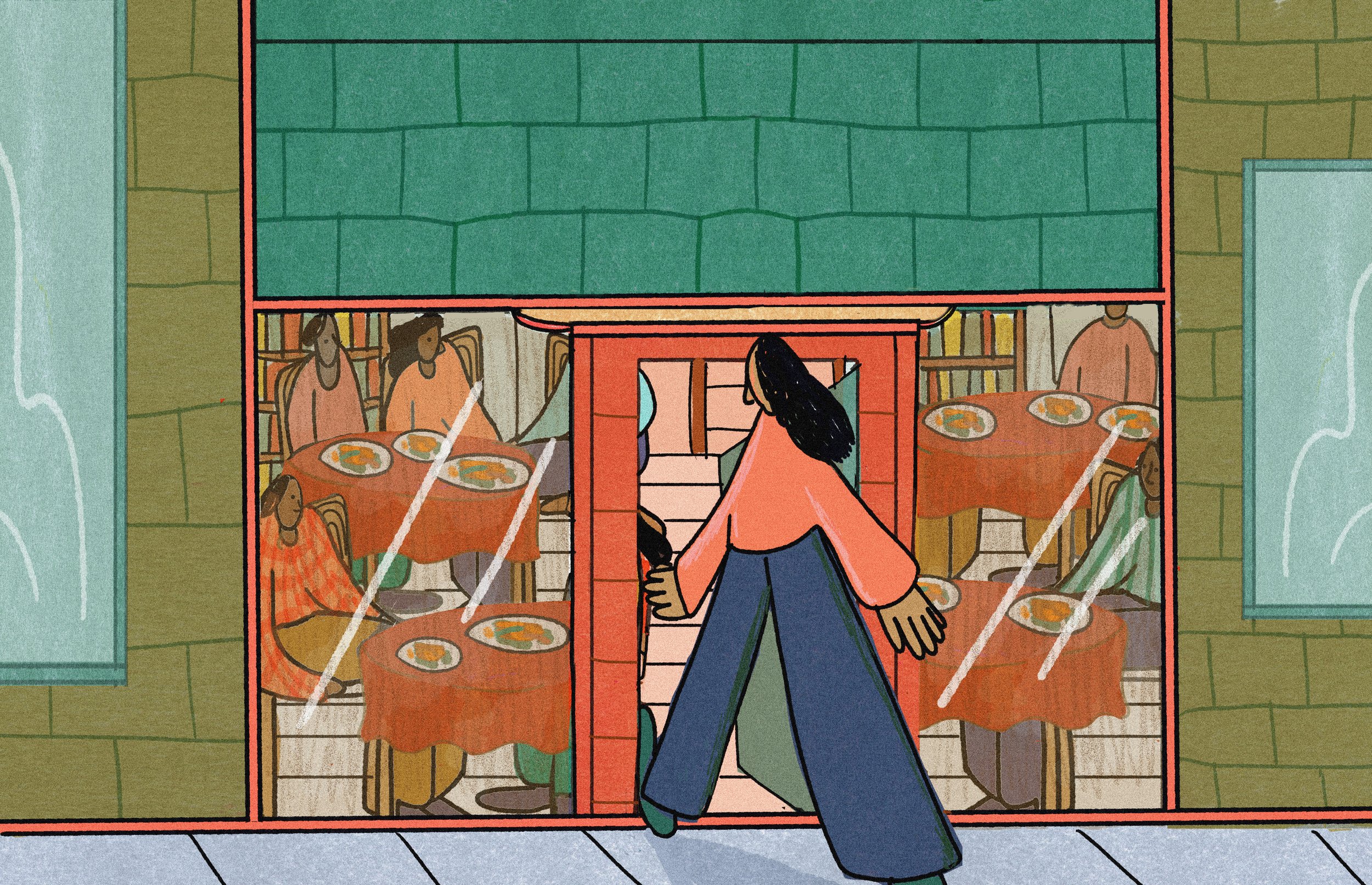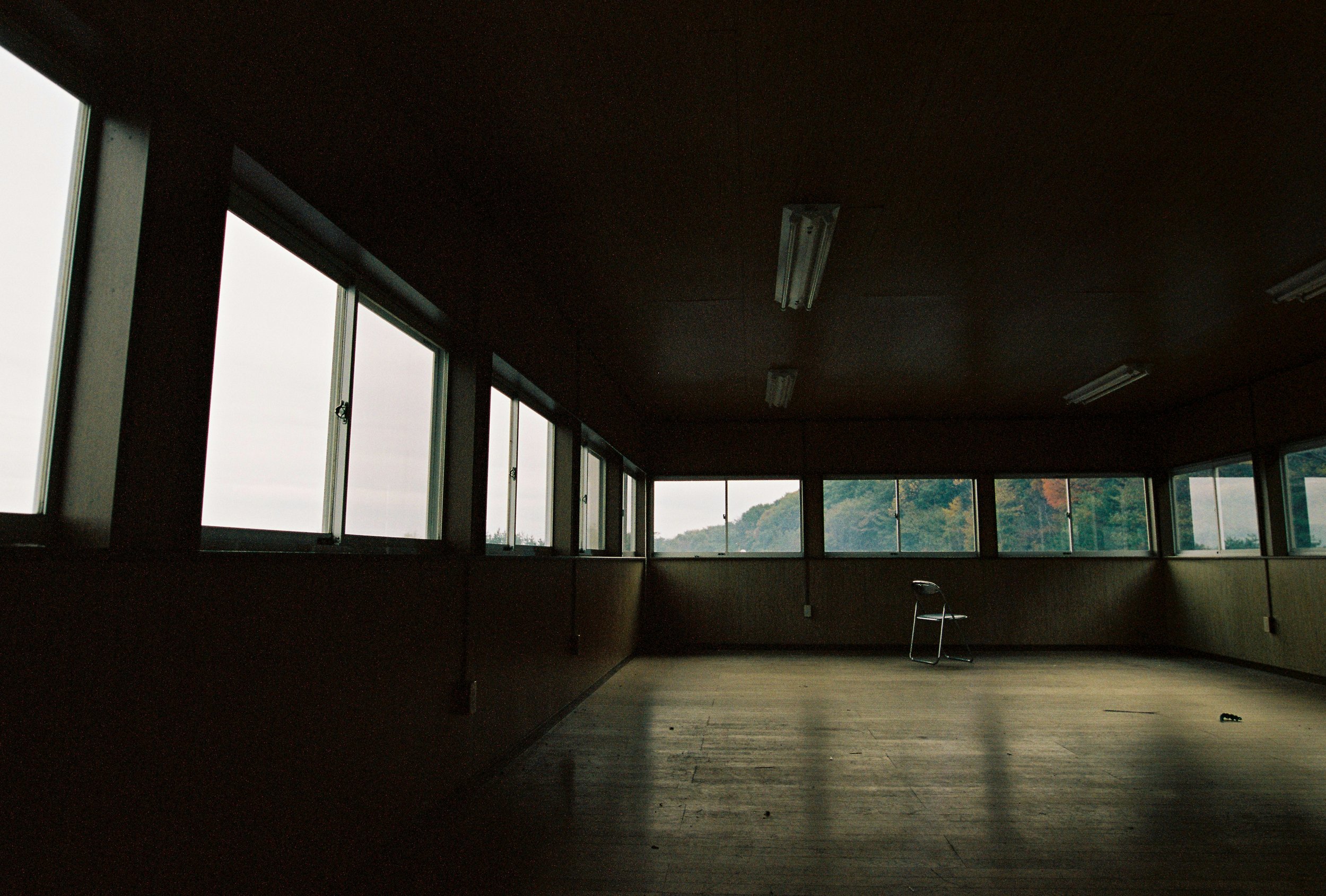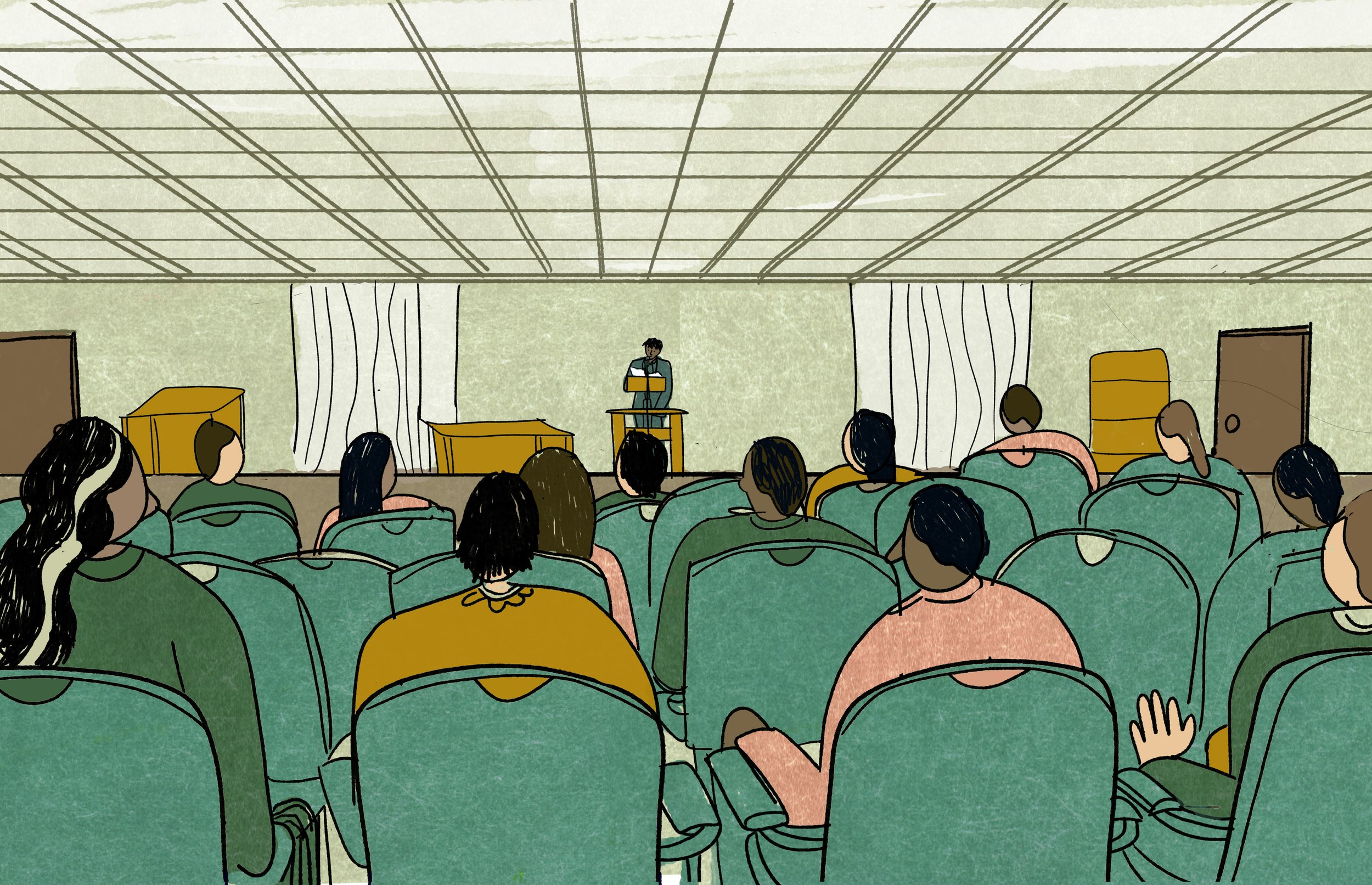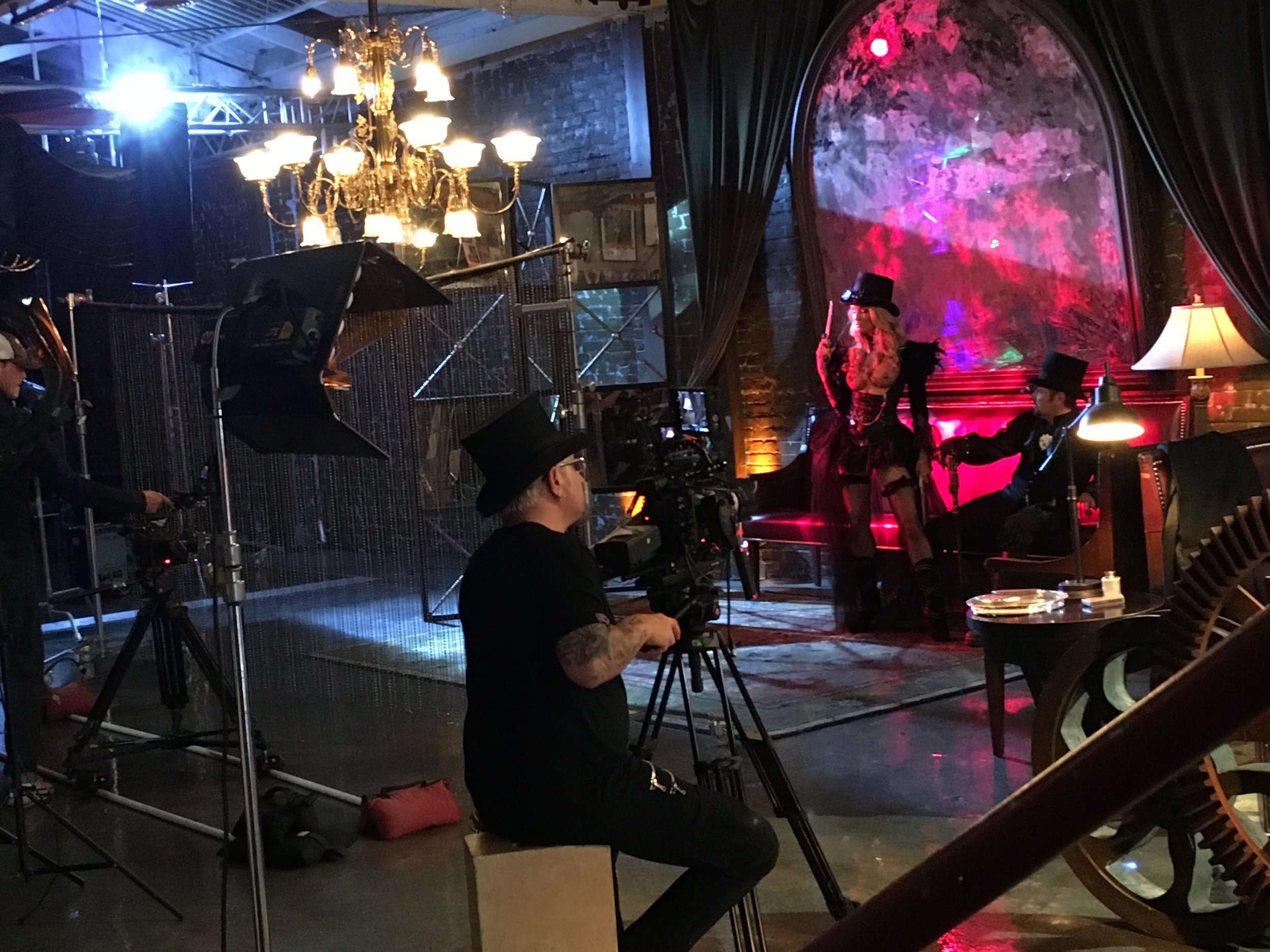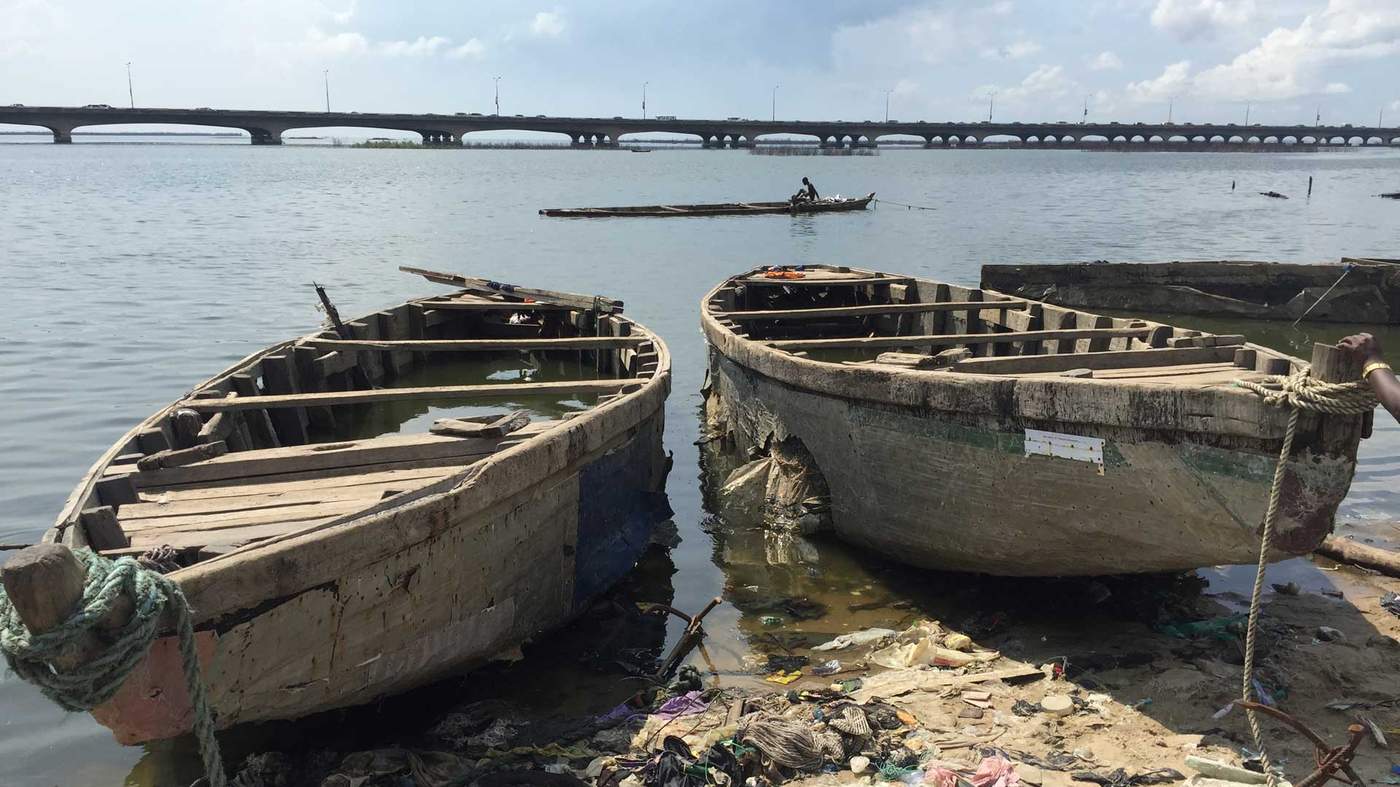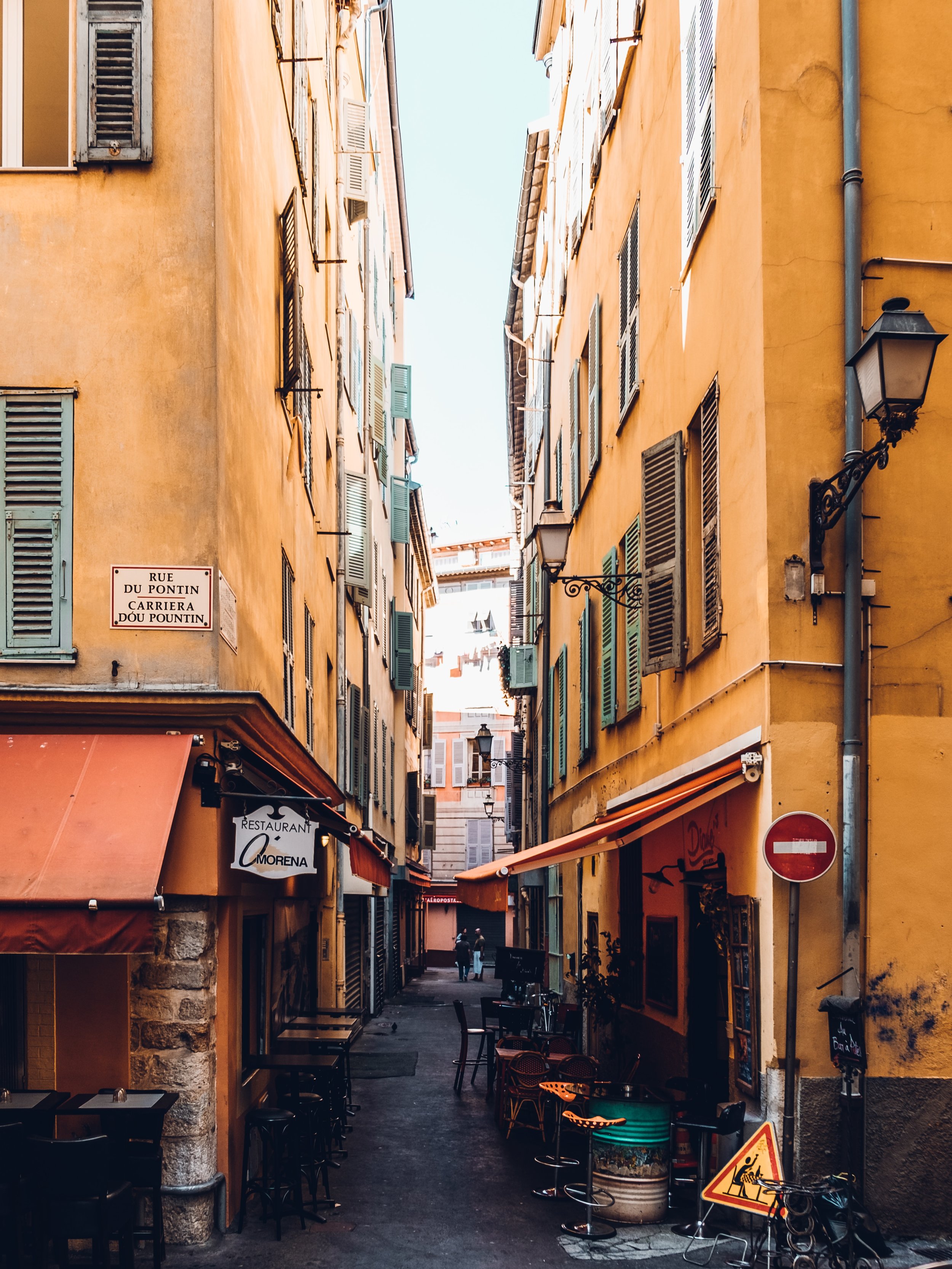Behind the Briefings: Tara Palmeri

Rare is the person who’ll promise you they saw Trump’s victory coming a mile away. Tara Palmeri is one of them, because she was miles away, covering Brexit for Politico in Europe, and paying keen attention to rumblings of discontent among working-class Brits.
Since moving back to D.C. to cover the White House, first for Politico and now ABC News, this 30-year-old reporter has had her share of both reporting coups as well as briefing-room bruisings, once besmirched by Sean Spicer as “an idiot with no real sources.”
As 2017 comes to a close, OA’s Elaina Plott asked Palmeri what this past year has been like, not just as a rising-star reporter, but as a person—a daughter, granddaughter, someone trying to keep it together. This intimate conversation reminds us that the twists and turns that characterize today’s political news play out and echo through the lives of those who cover them.
OA: Rewinding one year, what was going through your head on election night 2016?
TP: Well, I was based in Europe and covering the European Union for Politico. Specifically, I’d been covering Brexit, which was actually very similar—almost identical—to the populist movement in the U.S. I got to know Nigel Farage, who is a friend of Trump's, and I’d been picking up on all the similarities in the messaging of how the elites were taking advantage of the little guys via globalism. So I’d been following really similar stories.
The day of the election, I had a party at my house in Brussels and invited friends and diplomats from basically every country in the E.U. Obviously, it was really early for us in Europe when the election results came in. It was 6:00 a.m when we got the results, and it felt like in Europe, they were trying to make sense of it all. 'Is this good for us? Is this not good for us?' Obviously, Trump’s "America First" mantra didn’t bode well for Europe, and I think they were worried about the destabilization of their countries.
But at that point, I knew that I’d be moving home to cover the new administration, regardless of whether it was President Clinton’s or President Trump’s. And I had a history of covering Trump at the New York Post. So in a way I thought, ‘well: at least I know him.’ I was excited to move back.
OA: How did your experience covering Brexit give you a vocabulary or framework for covering this White House?
TP: I always tell this to people—and they never believe me—but I predicted that Trump would win. Even though I wasn't in the U.S. covering the Trump campaign day-to-day, I felt echoes when I was traveling all around the U.K. There was a real resentment toward the elites. I would hear people talk about Angela Merkel in Germany in the same way they were talking about Hillary Clinton, basically calling her crooked. I actually heard a taxi driver say, 'Oh, that Angela Merkel, she's so crooked. She doesn't care about us in Doncaster.' So it was interesting talking to working class people in the U.K. and hearing concerns like, 'We don't want these economic migrants coming from Eastern Europe and taking our jobs.’
I'm actually Polish—I have a dual citizenship with Poland and the U.S.—so some might call me an economic migrant. My parents are both working-class; I’m the first person in my family to graduate with a four-year degree. It wasn’t hard for me to understand working-class concerns. My dad, an electrician, has expressed his concern about people coming from other countries and taking manual labor jobs. He voted for Trump, and I think talking candidly to people in more situations like his—even as someone observing from farther away—I knew early on to take Trump seriously, that he had a real shot.
OA: Once you got on the ground in D.C., did your experience covering Trump at the New York Post help?
“There were times when [Spicer] would call me and yell at me. Now in hindsight, I learned from that experience that I should never let anyone scream at me off the record. That shouldn’t be allowed.”
TP: Well, the second I got home, I reached out to Trump's former gatekeeper, Rhona Graff. Back when I was at the Post, if I wanted to talk to Trump, I would call Rhona and she would often just patch him through and get Trump on the phone. He loved talking to the press directly. I remember I had some questions about the Trump Hotel in D.C.—this was years ago, in 2010 I think—and she put Ivanka on the line.
My boss at the time at Page Six, Richard Johnson, was friends with Donald Trump. Trump was actually at [Johnson’s] going-away party with Melania—I met them there. And Richard would send me to Trump events at the Soho Hotel or uptown.
Trump was a major player in New York—he was essentially created by Richard Johnson at Page Six. He would show up at parties and he had this larger-than-life personality, and so the gossip columnists sort of gave him his start, in terms of being branded a “real estate mogul.” So I think he had a real appreciation for the New York tabloids. I even had his cell phone number at the time. I don't know if it still works or not, though. I try not to abuse that. [laughs] It’s just a funny thing to see this all coming full circle.
OA: Do you feel like Trump has changed at all since then?
TP: He doesn't shock me in the way that I think he shocks a lot of other reporters. When I was at the New York Post, I covered City Hall, too, where there were a lot of colorful characters. City Hall is sort of a microcosm of what you see in the White House right now—it attracted all sorts of different colorful people who spoke very plainly, who knew how to use the press to get their point across in creative ways.
I actually think the way that Trump is running the press now is very similar to Bill de Blasio. Bill de Blasio is essentially the opposite of Trump in terms of politics, but he’s using the same exact tool that Trump is using with the press. He’s starting a war with the New York Post, calling them ‘fake news,’ screaming at them in press conferences and blocking access. Because I covered Bill de Blasio for about a year before I went to move to Europe, when I see what Trump does in the White House on a much bigger platform, I don’t find it very different from what I saw at City Hall.
OA: What was your strategy in cultivating new relationships in the White House?
TP: Rhona actually connected me with Hope [Hicks] and Sean [Spicer] and others, which was a good way to start. But I also knew Sean from when I was a columnist at the Washington Examiner—that was my second job—so I thought instantly that he and I would work really well together, but that didn’t seem to really be the case.
A lot of the people that came into D.C. to fill Trump’s ranks are all really new to politics. And in a way, that was kind of refreshing for someone like myself who had come from out of town as well. I never really felt that I was a creature of Washington, so I think we got along in that way.
OA: How do you feel about this administration’s attitude toward the press? When people talk about the States turning into the Soviet Union in terms of government-media relations, what do you think?
TP: It's a really interesting conversation to have. I try not to get to engage in that topic too much though, because I think it could be worse than what it is. I also think a lot of the things they're doing, other administrations have done, but they're just doing it more publicly. Like picking and choosing which outlets to deal with—they’re making a show of it, whereas other administrations would really try to keep that stuff hush-hush.
There’s always an antagonistic relationship between the White House press shop and the press; it’s just not always on display for the whole world to see. So that’s a difference. If anything, it just shows how important it is for us to be unbiased, to hold this administration accountable, and show the American public why we're worth listening to.
My grandmother, who grew up in Poland and under the Soviet Union, told me that she voted for Trump. But more recently she’s gotten turned off by the administration because they were shutting down press briefings for a while. And that reminded her of being under the control of Soviet Russia. I always like to check in with my friends and my family—and people who don't live in metropolitan cities—and ask, ‘what really bothers you?’ And for my grandma, [media blockage] was the thing.
OA: How would you compare your time covering the EU in Brussels to what you’re experiencing here?
TP: It's a much different game, in the sense that each country in the European Union—the 28, soon-to-be 27 countries—all have their own agendas. They have diplomats whose job is basically to get the press on their team. So it often felt like there were all these competing teams trying to win the press over.
But I didn’t find them to be antagonistic at all. I remember at one point the spokesperson for the European Commission tried using the phrase “fake news” and was shut down right away. The response was basically ‘no, no, no. You don’t get to bring that over here.’
OA: Has there ever been a time where you had to sacrifice pursuing one story because of the rapidity and flux of the news cycle?
“My grandmother...told me that she voted for Trump. But more recently she’s gotten turned off by the administration because they were shutting down press briefings for a while....I always like to check in with my friends and my family—and people who don’t live in metropolitan cities—and ask, ‘what really bothers you?’ ”
TP: I think that happens a lot. I always have a little notepad filled with all of my tips and all of my leads, and I actually like to keep it visible to myself, as a reminder of the stuff that I need to keep working on that maybe takes more time. I hate the idea of being out-scooped, and that’s sort of what keeps me motivated to try to fight [the quick turnover of news] and to use any free time I have to keep working on the leads that require more investigating, more time.
OA: If you could pause the news cycle and go deeper into one story, what would it be?
TP: I would probably want to look into all of the deregulations that have taken place since Trump took office and find out, what is the real impact on us as consumers?
I've seen a lot of people doing those stories, but I just would love to have the time and space to report: ‘this is what happened this week, and this is what it means for you.’ They say this administration has signed more laws and passed more bills than any administration in history, and that may be be true, but let’s see what’s going on there, and not get caught up in the drama of the everyday.
OA: How do your days in D.C. begin, typically?
TP: I wake up probably around 5:00 or 5:30. I like to work out, but I’m not always motivated to. I read my phone; read newsletters. I look at Twitter. I start just kind of collecting my ideas of what I think is going to happen that day. Sometimes, I send out tips or leads of stuff I heard from the night before because I’d like to plan to go out with my sources after work.
But then I have to actually start getting ready and having coffee, and every morning I’m turning on Good Morning America. I’m watching TV now a lot more—one room in my apartment always has CNN on, and the other has ABC. So as I move around my home, I’m catching the two different platforms.
And I do my voice exercises—I’m trying to learn how to be a really strong network broadcast reporter, so I take those seriously. I usually do voice exercises in the shower.
OA: Voice exercises?
TP: A lot of broadcast journalists do exercises to get the most out of their voice, to make it toned. There’s a song I was told is good for moving your voice in a different range that I sing.
OA: What’s the song?
TP: “Honeysuckle Rose.” It’s an old one.
OA: Given the pace of news in this current climate, do you worry about burnout?
TP: Oh, definitely. But on the weekends I really try to make it about me and I disconnect. Honestly, I just try to rest. I don’t really have the energy to go out, so on the weekends I really just try to catch up on reading and TV.
OA: What are you watching or reading right now?
TP: I'm catching up on “The Americans”—I love watching that show. I just finished “Veep.” I’m reading Peter Baker’s book Days of Fire about the Bush administration, and it’s really interesting.
OA: So you’re a political junkie through and through?
TP: I don't know if I’d use the word “junkie,” but here’s what it is: I feel so blessed to be able to cover an administration—it’s surreal to be in the press briefing room with veteran [White House] reporters like Peter Baker—and I’d love to have a longer perspective, since I haven’t covered other administrations. Reading about them is really helpful. It’s entertaining of course, but also good for my job—to find reporters I respect and to dig into their work. It can only make a journalist better.
OA: Would you ever want to write a book?
TP: Oh, definitely. My journal isn’t just for my own therapy. [laughs] It’s also for documentation of this time. It’s just good to have. You never know.
OA: Looping back to Spicer: how did you learn he had called you “an idiot with no real sources”?
TP: Ugh, that was pretty horrible. But the truth is, that was really not the beginning of it. I’d been writing stories about Trump’s concerns about Priebus, his former chief of staff. I wasn’t the only reporter writing about this, but I think maybe Spicer saw that I was new in town, and saw me as a target.
But that wasn’t the only reason I was surprised. There were times when [Spicer] would call me and yell at me. Now in hindsight, I learned from that experience that I should never let anyone scream at me off the record. That shouldn’t be allowed.
OA: Did he ever apologize to you?
TP: No, no. Definitely not. But I do remember, beyond just being upset, I was actually embarrassed for my family. I thought to myself, ‘what are they going to think when they see this?’ You know: my grandmother, my mother, my father. I think everybody feels that way if they’ve been attacked by someone who’s prominent. It’s less about you and more like: ‘how do my parents explain this to other people?’ But then there’s a part of you that thinks: I have to laugh this off. This is par for the course.
OA: Did you feel like Spicer’s comments set you back at all?
TP: I think actually a lot of people thought that what he said was really unprofessional. And maybe some people were more helpful to me because of that.
It’s pretty hard to work with someone who has publicly blasted you, but I made the best of it. If anything, it really awoke something inside of me—something which was already awake, but now even more so—that I really needed to prove this guy wrong. Every scoop, every exclusive I could break, it felt sweeter in a way. Like, ‘The press secretary of the United States thinks I'm an idiot with no real sources? I am going to prove him wrong every morning I wake up.’ So, you know what: thank you, Sean. [laughs]
He's no longer at the White House and I don't have any problems with the people who are. I don’t know; maybe he questioned whether I would survive the White House press corps. Which probably wasn’t the best bet to make.
Follow Tara Palmeri on Twitter at @tarapalmeri
ABOUT THE INTERVIEWER
Elaina Plott is a staff writer at Washingtonian magazine, and has written for GQ, the New York Observer, Harper's BAZAAR, and Town & Country. She also covered Congress for National Review. This is her third "Behind the Briefings" interview of our fall 2017 series. You can find her on Twitter at @elainaplott.
Header photo by Matt Popovich.


